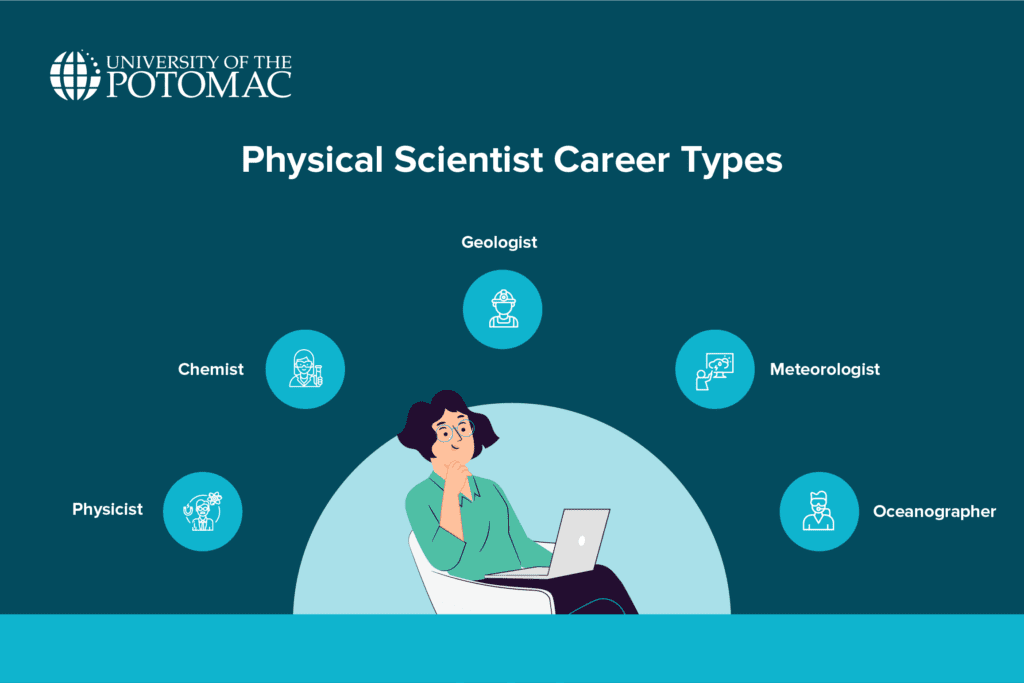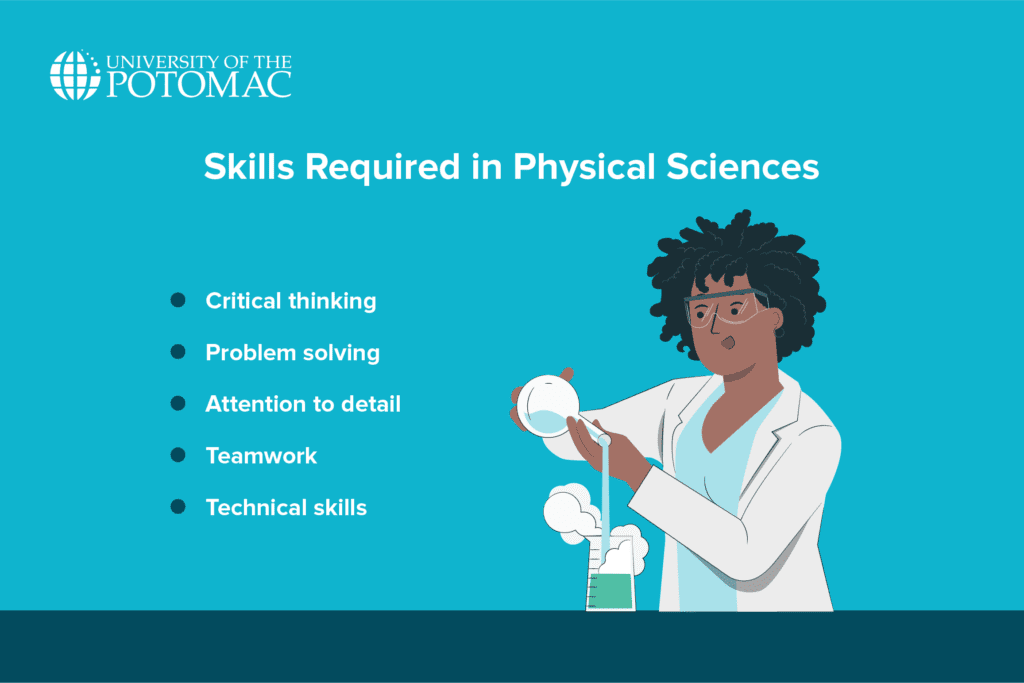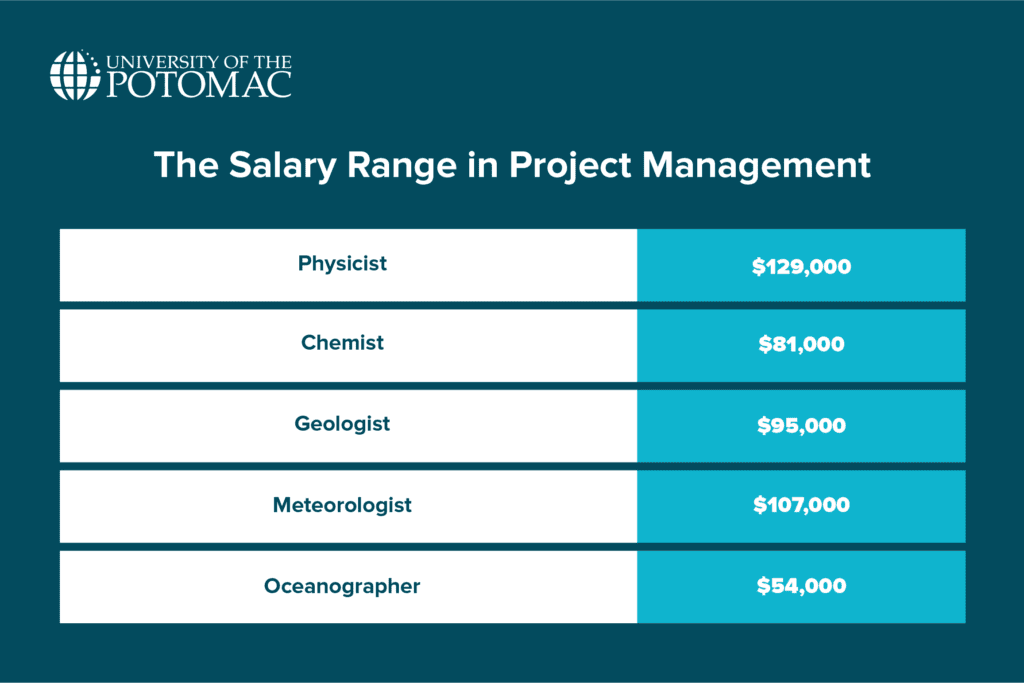Key Takeaways
- Physical scientists explore the physical world through specialties like physics, chemistry, and environmental science.
- Careers in physical science offer strong growth, solid salaries, and opportunities in exciting fields like renewable energy and space.
- Earning a degree in physical science provides the knowledge and experience needed to succeed in a variety of dynamic and impactful careers.
If you’ve ever looked at a mountain, a chemical reaction, or a weather pattern and wondered how it works, you’ve already stepped into the world of physical science. So, what is a physical scientist? Simply put, they study non-living systems to better understand the natural laws that shape our planet and universe.
This role often involves deep thinking, problem-solving, and working with data in labs or in the field. It can be challenging, but it plays a big part in shaping technology, protecting the environment, and expanding knowledge. For students exploring science careers, it’s important to understand what this path involves.
What Does a Physical Scientist Do?
A physical scientist’s day is a mix of curiosity and careful work, spending the most time conducting experiments to test ideas and observe natural phenomena.
In the lab, they might mix chemicals, use advanced instruments, or run computer simulations. Outside the lab, they could be collecting samples, measuring environmental factors, or studying rock formations in the field. After gathering data, they analyze the results to find patterns and answers.
Another significant aspect of the work is report writing and sharing results, which aids others in comprehending the significance of the research. This can involve creating charts, graphs, or detailed papers. Sometimes, physical scientists work with teams from other fields, like engineers or environmental experts, to solve bigger problems.
Their work helps develop new technologies, improve safety, and protect natural resources. In this role, every day offers a chance to discover something new about the world around us.
Types of Physical Scientists
Physical science covers a range of specialties, each focusing on different aspects of the natural world. Let’s explore some common types of physical scientists and what makes their work unique.

Physicist
Physicists are curious about the fundamental laws that govern everything around us: matter, energy, space, and time. They explore big questions like how the universe began or how particles behave at the tiniest scale.
Physicists can focus on different areas: theoretical physicists develop models and ideas, applied physicists work on practical uses like new technologies, and experimental physicists test theories with hands-on experiments.
You’ll find physicists working in universities, government labs, or aerospace companies, where their discoveries can lead to innovations in medicine, electronics, or space travel. Their work often involves using complex equipment and math to understand the physical world better.
It’s a role for those who enjoy deep thinking, solving puzzles, and pushing the boundaries of what we know about nature.
Chemist
Chemists study the substances that make up everything around us, looking closely at how they interact and change during chemical reactions. Their work helps develop new medicines, improve food safety, and protect the environment. Whether they’re analyzing ingredients in a lab or working on large-scale production in factories, chemists play a key role in many industries.
In the lab, chemists might test how chemicals react together, while in industrial settings, they focus on creating efficient processes and ensuring quality control. Their findings can lead to safer products and cleaner technologies. For anyone interested in hands-on science and solving real-world problems, chemistry offers a fascinating career path that combines creativity with careful analysis.
Geologist
Geologists are explorers of the Earth’s structure and history. They study rocks, minerals, and natural processes like earthquakes and volcanoes to understand how our planet has changed over time. Geologists often work in industries such as oil and gas, mining, or environmental consulting, where their knowledge helps find resources or assess risks.
Fieldwork is a big part of their job. Geologists spend time outdoors, collecting samples, mapping terrain, and observing natural features. Back in the office, they analyze data and create models to predict future events.
This hands-on approach makes geology perfect for those who love both science and adventure while helping protect communities and manage natural resources responsibly.
If you’re drawn to the practical applications of mapping, environmental analysis, and earth data modeling, the BS in Geospatial Information Technology program at the University of the Potomac could be a strong fit.
This program teaches students how to use tools like GIS, remote sensing, and spatial modeling to solve real-world problems in government, business, and the environment. With the option to study online or on campus, it’s designed for those who want to work at the intersection of technology, geography, and sustainability.
Meteorologist
Meteorologists are scientists who focus on the weather and climate. They study the atmosphere to predict daily weather conditions and long-term climate trends. Using data from satellites, radar, and weather stations, they create forecasts that help people plan their days and prepare for storms or natural disasters.
Meteorologists work in many places, including TV stations, government agencies, and environmental organizations. Their work plays a crucial role in agriculture, transportation, and public safety.
If you enjoy analyzing data and understanding nature’s patterns, meteorology offers a dynamic career that connects science with everyday life and helps keep communities informed and safe.
Oceanographer
Oceanographers explore the vast and mysterious world of the oceans. They study everything from marine life and ecosystems to ocean currents and the geology beneath the sea floor. Oceanography has several branches, including biological, physical, chemical, and geological oceanography, each focusing on different aspects.
Oceanographers spend time both in the field (on ships or coastal sites) and in labs analyzing samples. Their work supports climate research, helps protect marine habitats, and assists industries like offshore energy and fisheries. For those fascinated by the ocean’s secrets and passionate about preserving its health, oceanography offers an exciting and impactful career.
How to Become a Physical Scientist
Most people who want to become physical scientists begin with a deep curiosity about how the world functions. The next section examines the usual steps that people take when they enter the field.
Education requirements
Being a physical scientist requires more than just curiosity; you also need a good education. Most careers in this field start with a bachelor’s degree in a related subject like physics, chemistry, geology, or meteorology. This is where you learn the basics and start building your scientific mindset.
If you want to work in specialized or research roles, a master’s degree or even a PhD can help you get more opportunities. Advanced degrees often come with lab work, research projects, and opportunities to publish or teach.
Before deciding on a focus, you can investigate multiple branches of physical science with degrees offered by certain universities. Fieldwork, lab experience, and internships are also important ways to get your foot in the door.
Essential skills required
Being a physical scientist means more than just knowing facts. You need a skill set that helps you ask smart questions, dig into data, and work with others. Here are some of the key skills that matter most:

- Critical thinking: In science, things are not always black and white. Critical thinking helps you break down complex questions, spot patterns, and connect ideas in smart, logical ways. You’ll use this skill every day, whether you’re designing an experiment or interpreting strange results. It’s the mindset that helps you ask, “What does this really mean?” and “How do I prove it?”
- Problem-solving: Things often don’t go according to plan in a lab or in the field. A piece of equipment might break, or the data might not match your theory. Problem-solving helps you stay calm and flexible. It means being able to shift gears quickly, find alternative methods, and still move the project forward.
- Attention to detail: Science depends on accuracy. One small error in measurement or data entry can throw off an entire experiment. That’s why being detail-oriented is essential. Whether you’re logging sample data, running a simulation, or analyzing lab results, a sharp eye can catch mistakes early and help maintain the integrity of your work.
- Teamwork: Most scientific breakthroughs are the result of collaboration. You might be working with fellow scientists, engineers, technicians, or even environmental and government agencies. Teamwork means listening well, sharing your knowledge, and building solutions together.
- Technical skills: Physical scientists often work with specialized tools and software. You might need to operate lab instruments, use coding languages to model data, or run simulations through advanced programs. These hands-on skills vary depending on your specialty, but they all help you turn raw data into useful insights.
Benefits of Becoming a Physical Scientist
Benefits of becoming a physical scientist include conducting research, solving real-world issues, and having a variety of career options in labs or the field. It also provides job growth opportunities and good salaries.
Interested in pursuing a degree?
Fill out the form and get all admission information you need regarding your chosen program.
This will only take a moment.
Message Received!
Thank you for reaching out to us. We will review your message and get right back to you within 24 hours.
If there is an urgent matter and you need to speak to someone immediately you can call at the following phone number:
- We value your privacy.
Salary expectations
Physical scientist salaries vary depending on specialization, experience, and sector. As of early 2025, the U.S. national average is around $86,500 per year, with entry-level positions starting near $53,000 and top earners reaching $138,000. Meanwhile, general occupational data from the U.S. Bureau of Labor Statistics (2023) shows a $112,000 annual median salary for physical scientists.

Your pay can also shift based on geography, with cities like San Francisco or New York often paying $120,000+, while smaller areas may offer less. Specialization matters too; chemists tend to earn about $81,000 annually, and earth scientists around $132,000.
Here’s a quick rundown of the specialties we’ve covered and their salaries:
- Physicist: $129,000 average annual salary
- Chemist: $81,000 average annual salary
- Geologist: $95,000 average annual salary
- Meteorologist: $107,000 average annual salary
- Oceanographer: $54,000 average annual salary
Jobs with a private company often pay more than academic or government roles, though public positions may offer stronger stability and benefits. Among the top highest-paying industries for physical scientists are aerospace product and parts manufacturing, scientific research, and enterprise.
Job outlook
Demand for physical scientists is set to grow at a healthy pace over the next decade. Environmental scientists and specialists, for example, are projected to see a 7% increase in jobs from 2023 to 2033, well above average. Physicists, astronomers, chemists, and materials scientists also enjoy strong forecasts, with growth rates of 7%.
Industries related to environmental science, renewable energy, and sustainability are poised for the highest demand. As climate awareness and green policies rise, roles such as environmental scientists, hydrologists, and clean-energy specialists will see particularly strong expansion.
Technological advancements, expanding climate research, and increasing government and private funding also add momentum, boosting opportunities in data analysis, fieldwork, and lab sciences.
Overall, job growth in physical science fields is expected to surpass average rates for all occupations, offering fresh opportunities yearly due to both industry growth and workforce turnover.
Conclusion
Physical scientists are the curious minds behind some of the world’s biggest discoveries, studying everything from the environment to energy to outer space. If this kind of work excites you, you don’t have to wait to chase it.
At the University of the Potomac, you can build the skills and confidence to turn your passion for science into a real career. Ready to explore your future as a physical scientist? Check out our programs and take the first step today.
Frequently Asked Questions
How long does it take to become a physical scientist?
Becoming a physical scientist typically takes about four to six years, usually by earning a bachelor’s degree, with advanced roles often requiring a master’s or Ph.D.
What’s the difference between a physical scientist and a life scientist?
Physical scientists study non-living systems like physics, chemistry, and earth science, while life scientists focus on living organisms and biology.
Can physical scientists work in space-related fields like NASA?
Yes, physical scientists can work in space-related fields like NASA, contributing to research, satellite technology, and space exploration missions.










